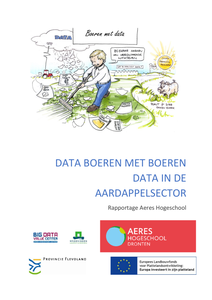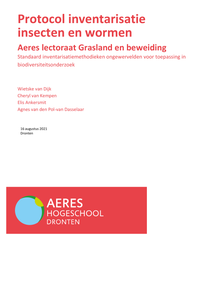Hoewel consumenten aangeven duurzame aspecten van kleding belangrijk te vinden, vertaalt dit zich niet direct in de aankoop van meer duurzame kleding. Uit een enquête van TMO Fashion Business School onder de klanten van mkb multi-brand fashionretailers (steekproefgrootte= 363) blijkt dat 61% van de ondervraagden niet weet welke merken duurzaam zijn en behoefte hebben aan transparantie hierover. Daarnaast vindt 71% de communicatie van verkoopmedewerkers over duurzaamheid slecht (Van der Laan, 2022). Wat kunnen mkb multi-brand fashionretailers doen om hun assortiment duurzame kleding beter te verkopen? Om antwoord te geven op bovenstaande vraag is Next Fashion Retail (NFR) opgericht; een SIA onderzoeksproject van De Haagse Hogeschool, TMO Development Center, Cube Retail en branchepartners Modint, Inretail en Euretco. Next Fashion Retail onderzoekt hoe moderetailers de online en offline retailomgeving kunnen inzetten om de verkoop van duurzame kleding te stimuleren (Van der Laan, 2022). Het onderzoeksproject van NFR is gestart met de onderzoeksvraag: Hoe kunnen mkb multi-brand fashion retailers hun customer journey inrichten om de verkoop van duurzam(er)e kleding te vergroten? In het voorjaar van 2022 zijn op basis van deze eerste onderzoeksresultaten innovaties ontwikkeld door designstudenten, die retailers helpen hun duurzame mode-aanbod beter te verkopen (Van der Laan, 2022). Het winnende design idee van het NFR onderzoek zijn de informatieve hangers van Maaike Roos: Deze zogenaamde ‘conversation pieces’ stimuleren de dialoog tussen medewerkers en klanten over duurzaamheid en zorgen ervoor dat zowel medewerkers als klanten meer informatie over duurzamere keuzes krijgen. Er zijn 3 categorieën geformuleerd met 6 vragen, vijf op de hangers en éen op de ‘give away’ bij de kassa. De drie categorieën zijn: materialen, makers en care. De categorie materialen bestaat uit de materialen: katoen, polyester, viscose en wol. De categorie ‘ makers’ bestaat uit een shelftalker en een hanger eveneens de categorie ‘care’. Het onderzoek is zowel on- als offline: het offline gedeelte wordt uitgevoerd door studenten van TMO Fashion Business School en zal worden uitgevoerd bij negen retailers in de periode van 14 oktober tot 9 december 2022 (zie tabel 1.0). Het online gedeelte wordt uitgevoerd door studenten van de opleiding Ondernemerschap en Retailmanagement van de Haagse Hogeschool.
DOCUMENT

Het project van Aeres Hogeschool Dronten heeft als doel om via het delen en analyseren van telersdata binnen een groep van dertien telers te komen tot nieuwe inzichten, betere bedrijfsvoering en efficiëntere ketens, gericht op economische en ecologische duurzaamheid. Hiervoor wordt een data-infrastructuur gerealiseerd waarmee telers gefaciliteerd worden in het verzamelen, delen en analyseren van data en toegang krijgen tot complexere analyse technieken. Het project beoogt een groep telers op te leiden om de infrastructuur en tools te gebruiken en gezamenlijk data te delen en te analyseren om de teelt te verbeteren. Aan het einde van het project worden concrete verbeteringen verwacht op het gebied van input en opbrengst in de aardappelteelt.Het project richtte zich op het onderzoeken van hoe data van agrarische ondernemers in Flevoland gebruikt en gedeeld kan worden om economische en ecologische verbeteringen te bereiken. De landbouwsector verzamelt steeds meer gegevens over variabelen die de groei en bewaring van gewassen beïnvloeden, waarmee de benadering van landbouw verduurzaamd kan worden. Echter, het gebruik van data staat nog in de kinderschoenen en beslissingen worden vaak genomen op basis van advisering van externe commerciële partijen. Het delen van data is ook nog gevoelige materie. Het project wil deze drempels verlagen door telers meer data onderling te laten uitwisselen en met partners in de keten.De data-infrastructuur wordt gerealiseerd voor een groep van 15-20 telers die bereid zijn teelt- en/of bewaarsturing te doen op basis van beschikbare object-specifieke en actuele data. De data kunnen met elkaar gedeeld worden en zo kunnen de bedrijven verbeterd worden. De telers krijgen via de infrastructuur toegang tot complexere analyse technieken. Het project is opgedeeld in drie groepen op basis van locatie in de provincie: een groep telers rond een pilot bedrijf in Dronten, een groep rond een pilot bedrijf in Swifterbant en een groep in de NOP.De drie pilot bedrijven hebben aan het begin van het project een inventarisatie gedaan op basis van een door Aeres opgestelde vragenlijst om inzicht te krijgen in de minimale beschikbare data voor deelname aan het project. De meeste gevraagde data zijn reeds beschikbaar, behalve bij het pilot bedrijf in de NOP. De ontbrekende data kunnen worden opgevraagd bij lokale weerstations of in het project door projectpartners worden gerealiseerd.In de agrarische sector komt het vaak voor dat er ontbrekende data zijn over de factoren die bijdragen aan mislukkingen in de precisielandbouw. Dit komt doordat er vaak wordt gedacht in termen van wat wel werkt, in plaats van wat niet werkt. Een manier om dit tegen te gaan is door bewust te zijn van de ontbrekende data en deze proactief op te zoeken. Dit kan bijvoorbeeld door onderzoek te doen naar de milieu-impact van landbouw.Door dit project is beter inzicht verkregen in de effectiviteit van inputs alsmede met betrekking tot de impact op de omgeving. De volgende verbeteringen zijn gerealiseerd:• Beter inzicht in timing van teelthandelingen waardoor de bodem wordt ontzien.• Beter inzicht in effecten van teeltrotaties waardoor gekozen kan worden voor rotaties met minder impact en toch goede financiële resultaten behaald worden.• Door vergelijking kan er effectiever omgegaan worden met inputs zoals mest en gewasbeschermingsmiddelen waardoor naast minder gebruik ook minder af- en uitspoeling zal plaatsvinden.• Door effectiever gebruik van inputs zal per kg geproduceerde aardappelen minder oppervlakte, energie en chemie nodig zijn.Trefwoorden: digitalisering boerenbedrijf, data, pop3, databoeren, precisielandbouw RVO zaaknummer: 17717000042
DOCUMENT

The Technical Manual for the digital evaluation tool QualiTePE supports users of the QualiTePE tool in creating, conducting and analysing evaluations to record the quality of teaching in physical education. The information on the General Data Protection Regulation (GDPR) instructs users on how to anonymise the data collection of evaluations and which legal bases apply with regard to the collection of personal data. The technical manual for the digital evaluation tool QualiTePE and the information on the General Data Protection Regulation (GDPR) are available in English, German, French, Italian, Spanish, Dutch, Swedish, Slovenian, Czech and Greek.
DOCUMENT

Dit stagenotitieblok is ontwikkeld door Kenniswerkplaats Zorgvuldig Data Delen, en is afkomstig van Hogeschool Utrecht - Juridische Zaken en Privacy Officers. Neem dit stagenotitieblok mee naar je sollicitatiegesprek of eerste stagedag. Je vindt er toelichting op: 1 Welk stagecontract? 2 Welke apps en devices mag je gebruiken? 3 Hoe ga je om met vertrouwelijke data? 4 Privacybeleid, hoe zit dat?
DOCUMENT

Berichten in de media over biodiversiteit gaan vaak over de achteruitgang van biodiversiteit wereldwijd. Onderzoekers monitoren de biodiversiteit (verscheidenheid aan soorten), maar ook de biomassa van soortgroepen om te onderzoeken hoe het met de natuur gaat. Voor het systematisch monitoren van biodiversiteit in graslanden bij het lectoraat Grasland en Beweiding worden in dit document een aantal gestandaardiseerde protocollen voorgesteld. De data uit de metingen worden verzameld in een database, waardoor inzicht kan ontstaan in ruimtelijke en temporele variatie in de biodiversiteit.
DOCUMENT

De vroegsignaleringsaanpak in Amsterdam heeft een zeer hoog bereik: volgens dit recent onderzoek lukt het bij 80% van de inwoners met signalen van betalingsachterstanden om contact te maken. Bureau Bartels, Verwey-Jonker Instituut, Centraal Bureau voor de Statistiek en Hogeschool Utrecht brachten in samenwerking met Gemeente Amsterdam in kaart wat de Vroeg Eropaf-aanpak zo succesvol maakt: • Het outreachend werken en proactief benaderen van inwoners met betaalachterstanden. Dus: niet wachten tot inwoners zelf op zoek gaan naar hulp. • Gecombineerde aanpak: inwoners benaderen via huisbezoek en telefoon en e-mail en WhatsApp, en alle andere manieren die je kunt bedenken. • Verwachtingsmanagement: duidelijk en eerlijk zijn over mogelijke dienstverlening. • Maken van echt contact: luisteren naar de inwoner en horen welke vragen, twijfels, angsten of oplossingen de inwoner heeft. Vervolgens is op drie manieren geprobeerd de Vroeg Eropaf-aanpak nog effectiever te maken: de eerste brief werd aangepast, er werd een videoclip ingezet, en inwoners zijn bevraagd over een brief en een videoclip waarin een persoon met ervaringskennis aan het woord kwam. In het rapport ‘Drie verkenningen voor het optimaliseren van de Vroeg Eropaf-Aanpak’ in Amsterdam staan concrete tips om de schriftelijke communicatie te verbeteren, aandachtspunten bij de verspreiding van een videoclip en tips voor de inzet van ervaringskennis in communicatie inzake vroegsignalering.
DOCUMENT

B4B is a multi-year, multi-stakeholder project focused on developing methods to harness big data from smart meters, building management systems and the Internet of Things devices, to reduce energy consumption, increase comfort, respond flexibly to user behaviour and local energy supply and demand, and save on installation maintenance costs. This will be done through the development of faster and more efficient Machine Learning and Artificial Intelligence models and algorithms. The project is geared to existing utility buildings such as commercial and institutional buildings.
DOCUMENT

Robots need sensors to operate properly. Using a single image sensor, various aspects of a robot operating in its environment can be measured or monitored. Over the past few years, image sensors have improved a lot: frame rate and resolution have increased, while prices have fallen. As a result, data output has increased and in a number of applications data transfer to a processing unit has become the limiting factor for performance. Local processing in the sensor is one way of reducing data transfer. A report on the Vision in Robotics and Mechatronics project
DOCUMENT

Introduction - Life long sport and PA pleasure in an inclusive environment (Nationaal Sportakkoord, 2020) - Aging population (Loket Gezond Leven, 2024) - Physical activity in elderly (65+) 38% (Loket Gezond Leven, 2024) - Loneliness is limiting factor (Volksgezondheid en Zorg, 2024) - Save and inviting outer space, also for elderly
DOCUMENT

Sustainable and Agile manufacturing is expected of future generation manufacturing systems. The goal is to create scalable, reconfigurable and adaptable manufacturing systems which are able to produce a range of products without new investments into new manufacturing equipment. This requires a new approach with a combination of high performance software and intelligent systems. Other case studies have used hybrid and intelligent systems in software before. However, they were mainly used to improve the logistic processes and are not commonly used within the hardware control loop. This paper introduces a case study on flexible and hybrid software architecture, which uses prototype manufacturing machines called equiplets. These systems should be applicable for the industry and are able to dynamically adapt to changes in the product as well as changes in the manufacturing systems. This is done by creating self-configurable machines which use intelligent control software, based on agent technology and computer vision. The requirements and resulting technologies are discussed using simple reasoning and analysis, leading to a basic design of a software control system, which is based on a hybrid distributed control system
DOCUMENT
